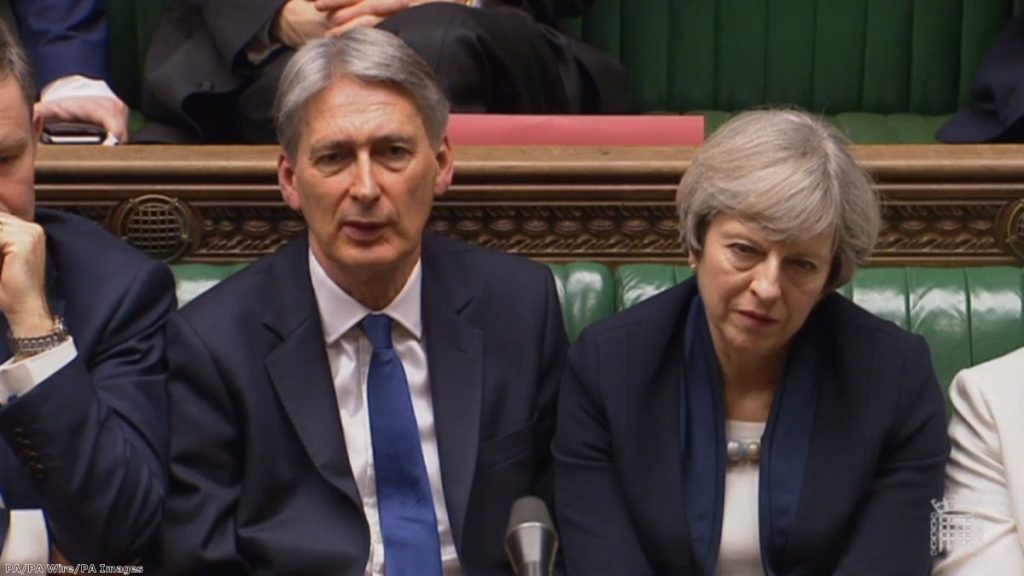Once upon a time, Britain wasn't like this. I once spoke to a political figure during Margaret Thatcher's government. At the time of the Falklands war, he had a Spanish-speaking wife and was critical of the decision to try to retake the island. But not one person, he told me, had questioned his patriotism. It was treated as a matter of policy disagreement.
That is no longer the political culture we live in. Today, even those who have signed up to hard Brexit outside the single market are routinely accused of treason.
It's not surprising. Brexit is primarily an emotional movement. It has very little evidential political content. Where evidence does exist – such as in the government's sectoral impact assessments or the legal advice on revoking Article 50 – it is kept secret.
When the great Brexit mission is thwarted by reality, as is happening now, it quickly transforms into a narrative of betrayal.


We saw this very early on, with the treatment of Remainers who refused to support Brexit. We saw it in the headlines about judges being "saboteurs". We saw it in the perpetual descriptions of Michel Barnier punishing Britain (in truth, his hands are so tied by the Council he could barely punish anyone). Boris Johnson, who once presented himself as an affable, liberal figure, now warns the young have "genuinely split allegiances" and says even soft Brexiters, who support the project but want to stay in the single market, have a "dismal lack of confidence in this country".
The reality of Brexit keeps getting worse and worse, but it can't be the fault of the project itself – so someone must be blamed. This week alone, Barnier said there had been a "disturbing" lack of progress in divorce talks, meaning we were still stuck in the first round of negotiation and unable to move onto the future trade arrangements. In response, Brexiters demanded the government talk up the possibility of no-deal. It's all a long way away from the promises made during the referendum campaign – of Europe needing us more than we need them and the German car industry knocking on the door of Downing Street cap in hand.
The frustrations of the situation have led Brexiters to find a new target: Philip Hammond. The chancellor is not a Remainer – he backs the Brexit project. He's not even a soft Brexiter. He wants to leave the customs union and single market. On the surface, they distrust him because he wants to maintain some degree of regulatory harmonisation outside the EU. But in reality it's deeper than that. He hasn't swallowed the nationalist potion. He is not a true believer. The holy spirit has not entered him. He still speaks in a cautious, rational manner, as if he were discussing a difficult and protracted negotiation rather than a mythical national origin story.
Friday’s Daily MAIL: “Sack ‘Saboteur’ Hammond” #bbcpapers #tomorrowspaperstoday pic.twitter.com/TP3mO9kPFw
— BBC News (UK) (@BBCNews) October 12, 2017
They want Philip Hammond to start opening the purse strings for no-deal preparation. There are a few problems with this. Firstly, he already lost two-thirds of his £27 billion Brexit war chest this week when the Office of Budget Responsibility finally downgraded its forecasts of productivity in the British economy. Spending more on customs check-points we may never need is not high on his list of priorities. Secondly, no-deal prep is largely useless on its own terms. Hammond could start expanding roads in Ireland, setting up infrastructure in Dover and all the rest, but he doesn't know what to do because the customs arrangements have not been negotiated yet. And even if we had, setting up things on our side won't save the situation – it's what happens on the other side that matters. Completing work on the British side will help us take European goods, but nothing will make them take ours.
Recognising this requires Brexiters to accept a fact they have ignored throughout the debate: that this is about what other people want too. It's not just about us. When your entire political mission is based on pretending it is an affront for countries to ever share control, it is not surprising that you fail to understand the practical basis on which they must do so.
Instead of taking that idea on board, the accusations of treason and betrayal have started up once again. The tabloid knives came out for Hammond early this week. Tory MP and leading Brexiter Bernard Jenkins said the Treasury had been "co-opted" by the EU. Former chancellor Nigel Lawson said what Hammond was doing was "very close to sabotage". John Redwood demanded that Treasury forecasts be made to look more like the pictures he sees in his head, tweeting: "Get the Treasury to have more realistic, optimistic forecasts and to find the money for a successful economy post Brexit". Conservative commentator Julia Hartley-Brewer even demanded Hammond be tried for treason. She did not appear to be joking.
Some Newspapers saying @PhilipHammondUK should be sacked – @JuliaHB1 thinks that doesn't go far enough… What do you think? #AftertheNews pic.twitter.com/ZcTfOtHClY
— After The News (@AfterTheNewsITV) October 12, 2017
These are still early days. The full repercussions of Brexit have not been felt yet. When they are, and the stark reality of what it entails becomes clear, it will get worse.









